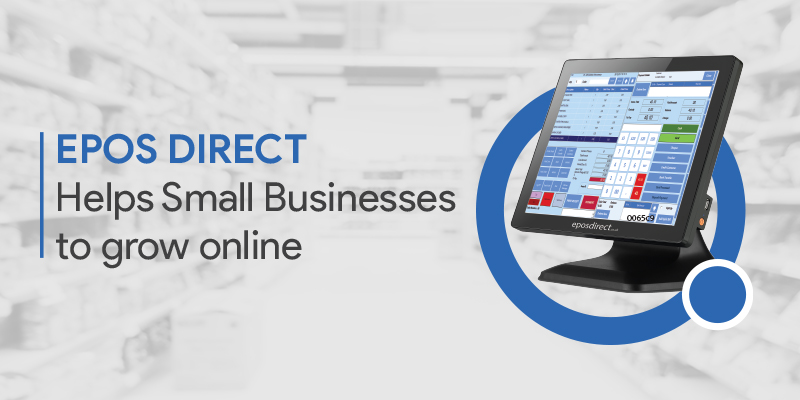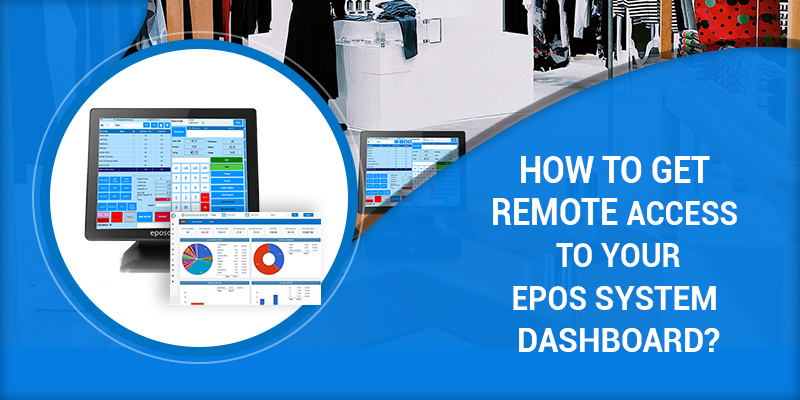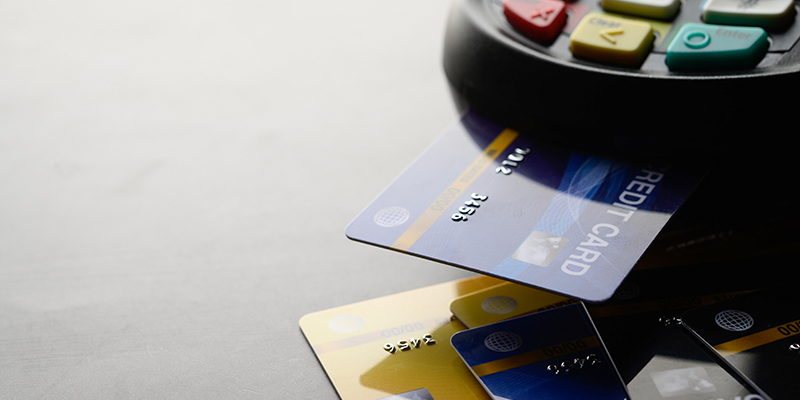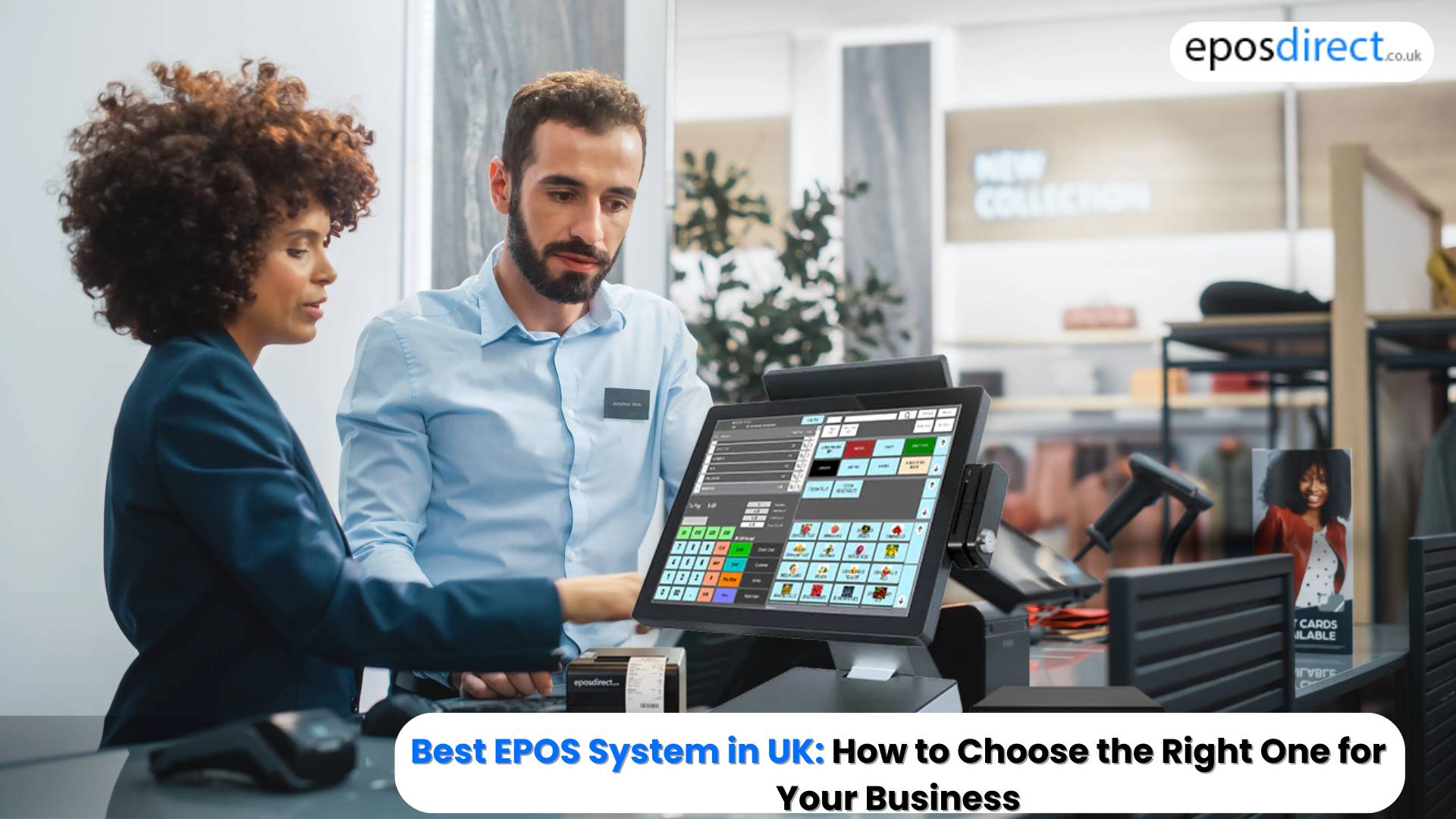We use cookies to make your experience better.
To comply with the new e-Privacy directive, you agree to the privacy policy and our use of cookies
Do You Have A Business? Open a Business Bank Account Today. - Epos Direct Helps to Grow Small Businesses online

If you are looking to start a new business, it’s important to get the right basics. First, you need to register your business name, choose a business structure, and secure funding.
Another significant aspect is opening a dedicated business account. This account is used to do most of your business transactions.
Here, we'll take you through everything to know how to set up your business account in the UK.
What is a business bank account?
In different ways, a business bank account is similar to a regular personal account, only in your business' name. These accounts are generally available to sole merchants, partnerships, organizations, clubs, societies, and charities.
The business bank account will be used for all your business's financial transactions, from paying staff to taking payments for products and services. Business bank accounts also generally have special rates and features which the bank elevates to sell new customers on the accounts.
Who needs a business bank account?
A few people, particularly sole traders and freelancers, think about why they need a business bank account. Can’t they use their personal accounts?
It's by and large good practice to open an individual account for your business. It keeps your personal accounts separate from your business accounts and helps you be more professional to potential customers.
A few businesses also need to have separate accounts as a matter of law. In case you're setting up a limited firm, you'll need to set up a separate bank account - this is a legal requirement.
What are the advantages of opening a business bank account in the UK?
In general, if you have a business, you should also need to have a business account.
First, sole traders can regularly mix up with personal and business affairs when using the same account for personal and professional use. A few banks even need personal and business accounts to remain separate.
Having a different bank account could also make filing your taxes easy. Rather than pouring through spreadsheets to find relevant transactions, you can easily export all your information and send it to your accountant.
Also, having a business account makes you look more professional to potential customers. Customers and merchants expect to see your business name on bank transactions. If your own name is displayed, they may be skeptical or hesitant to trade with you.
- Various advantages of a business account include:
- Invoices paid directly to your business account
- Being able to apply for a business card
- Building credit history so you can apply for other business products
- Features that make payroll and expenses easier
What do I need to have for setting up a business bank account in the UK?
Setting up a business account is easier as long as you meet the eligibility criteria.
List of documents required when opening the business account at a bank in the UK:
- Identification: All company director names will require some identity proof, like passport, national photo ID, or driving license.
- Address Proof: This will show the business' registered address. You can use a utility bill, latest bank statement, or council tax statement as proof.
- Contact details
- House registration number (for limited companies and partnerships)
- Estimated yearly turnover
- Documents proving your financial situation, for example, your credit and bank history
Researching accounts online
The majority of banks will provide detailed information about their account offering online. While you can't access an account online, there are many other resources you can avail yourself of. Make sure to shop around and compare min balance requirements, fee structures, and advantages offered by other banks.
Setting up a meeting to open your account
Once finalized the bank for you, you can set up a meeting to open your account. You can find lots of information online about various accounts in a bank, but most will require an in-person meeting where you will be provided the above-listed documents.
The bank will also have to meet in person with at least one of your company’s delegates in the UK to sign a bank mandate to open the account. During this meeting, make sure to inform the bank in case if your business has foreign shareholders and/or business directors.
Business bank account monthly fees
Most of the banks have monthly charges to use their accounts. Banks will also try to promote their accounts by offering special deals and limited-time offers for the initial 12 to 18 months of use.
While these are a few good deals, ensure you know what you'll be paying when the promotion expires. Generally, the more transactions there are for an account, the higher the charges are likely going to be. A few banks will never charge, while others may charge you around £20 per quarter.
What amount of time does it take to set up a business account in the UK?
It may take around three weeks to twelve weeks to start a business account in the UK. Ensure you factor this time into your planning. But, a few banks may allow you to create accounts on the same day.
Setting up a business account in the UK as a non-UK resident
It can be difficult to start a business bank account in the UK as a non-resident. Non-residents are less inclined to have the required documents listed.
But, with rates of immigration in the UK remaining consistent or rising, banks are getting far more flexible and allowing individuals to make accounts without as many restrictions. Banks like Lloyd's, Santander, Halifax, and Barclays are notable for helping individuals with setting up hassle-free business accounts.
Business banking tips
When using your business account, remember the following points:
Use your business account for all of your transactions: You can use this account to pay your staff, pay invoices, get digital payments, and create standing orders. Containing all your business activity to a single account will help with improving things when you file your taxes.
Don’t use your business account for personal use: The purpose of opening a separate business account is to keep it separate from anyone's individual accounts.
Be aware of your fees: Your bank may charge you for specific transactions, such as cash, electronic, or check payments, both all through your account. These, alongside monthly charges and overdraft penalties, can add up. Ensure you know what you're paying.
Use customer support: Many banks have customer service teams dedicated to helping small companies. In case you're struggling to make your account work for you, try talking to your bank to see how they can help.
Helping small companies grow
When you set up a new business account, the expectation is that you will deposit a huge amount of money. To process all those payments from customers, you need an epos system that is best in class.
Epos Direct has advanced epos systems for retail and hospitality businesses that need a dedicated system for accepting payments, managing stock, and integrating with the best accounting applications.
With the Epos Direct POS system, you can:
- Set up, locally and train staff in minutes
- Offer in-store, delivery, other services
- Sell across multiple channels
- See business insights through any device
- Access real-time reporting regarding staff, customers, sales, margin, and stock
- Use as a standalone device or connect with many applications, including payment systems, accounting software, and many more
- Get bespoke software for your business
Contact Epos Direct to find a great epos system for you.








